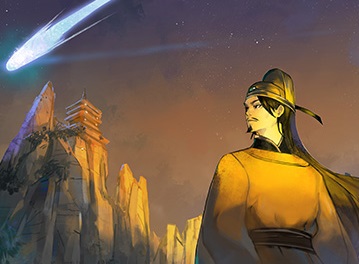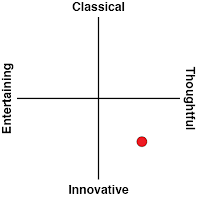Review by Matt S.
This game really has the most amazing soundtrack #NintendoSwitch pic.twitter.com/3hhfXKQbl2— Digisexual for Hatsune Miku 🇯🇵 (@DigitallyDownld) March 31, 2019
Oh my God this game’s soundtrack is freaking incredible #NintendoSwitch pic.twitter.com/DG9p87fmZQ— Digisexual for Hatsune Miku 🇯🇵 (@DigitallyDownld) March 29, 2019
This might just be the classiest rhythm game ever. #NintendoSwitch pic.twitter.com/VzhyOuXAeg— Digisexual for Hatsune Miku 🇯🇵 (@DigitallyDownld) March 29, 2019
It’s rare that I find a game so completely inspiring that it continues to consume my thoughts beyond the game, and encourages me to learn something new. I’ve always had an interest in Chinese history and artistic tradition. I’ve always had an interest in poetry. I’ve never had an excuse to delve into Chinese poetry and the history of its poets before Lyrica. And I’m so thankful that Lyrica has given me the reminder and excuse to do so.
– Matt S.
Editor-in-Chief
Find me on Twitter: @digitallydownld
Please help keep DDNet running: Running an online publication isn’t cheap, and it’s highly time consuming. Please help me keep the site running and providing interviews, reviews, and features like this by supporting me on Patreon. Even $1/ month would be a hugely appreciated vote of confidence in the kind of work we’re doing. Please click here to be taken to my Patreon, and thank you for reading and your support!








